
Why is Oracle called Oracle:
"Oracle" is not only the Chinese translation of "Oracle", but it can also express the business characteristics of Oracle. : "Oracle" literally means record of data and information. This meaning can be traced back to the distant Shang Dynasty (about 16th century BC to 11th century BC), when tortoise shells and ox bones (usually shoulder blades) were used to predict good and bad luck and record 'oracles'. These symbols are considered to be the earliest symbols in China. written text. Oracle, founded in 1977, has reinterpreted the ancient concept of "Oracle". The information storage, recording and access solutions created by Oracle are widely used as information carriers by enterprises around the world, including Chinese enterprises.
In June 1977, Larry Ellison, Bob Miner and Ed Oates co-founded a computer company called Software Development Laboratories (SDL) in Silicon Valley (the predecessor of ORACLE). At that time, 32-year-old Larry Ellison, a dropout who failed to graduate from three universities, was just an ordinary software engineer. When the company was founded, Miner was the president, Oates was the vice president, and Ellison was still working for another company due to a contract. Not long after, the first employee, Bruce Scott (anyone who has used ORACLE database software knows that there is a Scott user, right? Yes, it is this Scott. As for the Scott user's password Tiger, that is the name of Scott's cat) joined the company. Later, after Miner and Oates got tired of contract-based development work, they decided to develop general-purpose software, but they didn't yet know what kind of product they could develop. Oates first saw Edgar Court's famous paper along with several other related articles and recommended that Ellison and Miner also read it. Ellison and Miner foresaw the huge potential of database software (following IBM, yes), so SDL began planning to build a commercially available relational database management system (RDBMS).
Soon they came up with a less than decent product, or more specifically, more like a demo. Ellison and Miner named this product ORACLE based on the code of a CIA-funded project they worked on at their previous company. Because they believe that ORACLE (the dictionary definition means "oracle, prophecy") is the source of all wisdom. In 1979, SDL was renamed Relational Software, Inc. (RSI). After all, "Software Development Laboratory" did not look like the name of a large company. In 1983, in order to highlight the company's core products, RSI changed its name again to ORACLE.
On April 26, 2002, Oracle announced that it would officially use "Oracle" as the company's Chinese registered trademark to further improve the company's corporate identification system in the Chinese market and comprehensively explain Oracle's great emphasis on the ever-changing Chinese market.
"Oracle" is not only the Chinese translation of "Oracle", but also expresses Oracle's business characteristics: "Oracle" literally means the record of data and information. This meaning can be traced back to the distant Shang Dynasty (about 16th century BC to 11th century BC), when tortoise shells and ox bones (usually shoulder blades) were used to predict good and bad luck and record 'oracles'. These symbols were
Considered to be the earliest written text in China. Oracle, founded in 1977, has reinterpreted the ancient concept of "Oracle". The information storage, recording and access solutions created by Oracle are widely used as information carriers by enterprises around the world, including Chinese enterprises.
Recommended tutorial: "Oracle Tutorial"
The above is the detailed content of Why is Oracle called Oracle?. For more information, please follow other related articles on the PHP Chinese website!
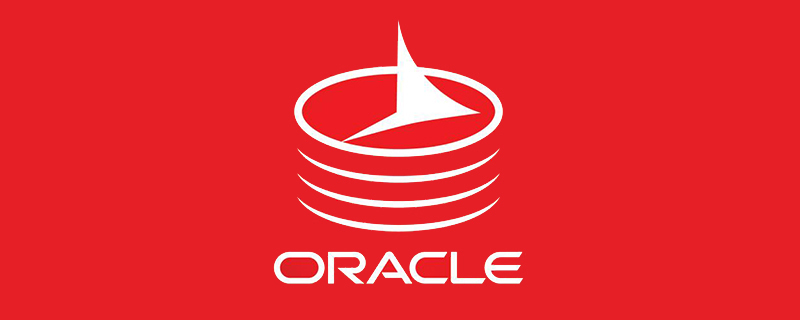 什么是oracle asmApr 18, 2022 pm 04:16 PM
什么是oracle asmApr 18, 2022 pm 04:16 PMoracle asm指的是“自动存储管理”,是一种卷管理器,可自动管理磁盘组并提供有效的数据冗余功能;它是做为单独的Oracle实例实施和部署。asm的优势:1、配置简单、可最大化推动数据库合并的存储资源利用;2、支持BIGFILE文件等。
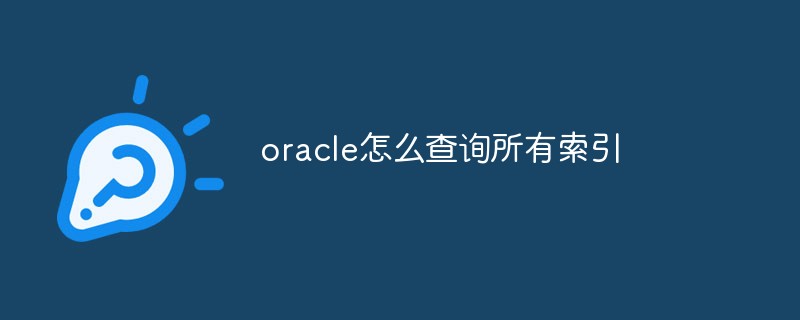 oracle怎么查询所有索引May 13, 2022 pm 05:23 PM
oracle怎么查询所有索引May 13, 2022 pm 05:23 PM方法:1、利用“select*from user_indexes where table_name=表名”语句查询表中索引;2、利用“select*from all_indexes where table_name=表名”语句查询所有索引。
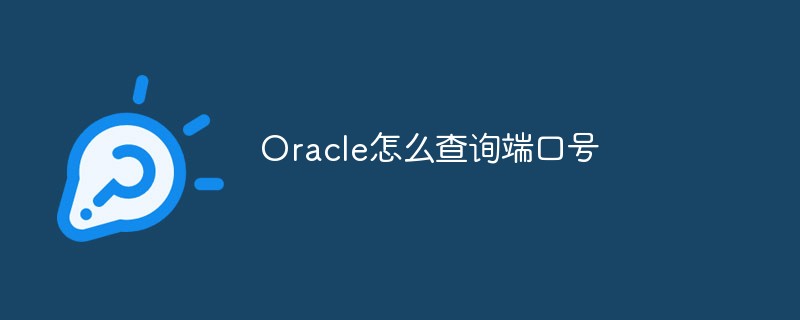 Oracle怎么查询端口号May 13, 2022 am 10:10 AM
Oracle怎么查询端口号May 13, 2022 am 10:10 AM在Oracle中,可利用lsnrctl命令查询端口号,该命令是Oracle的监听命令;在启动、关闭或重启oracle监听器之前可使用该命令检查oracle监听器的状态,语法为“lsnrctl status”,结果PORT后的内容就是端口号。
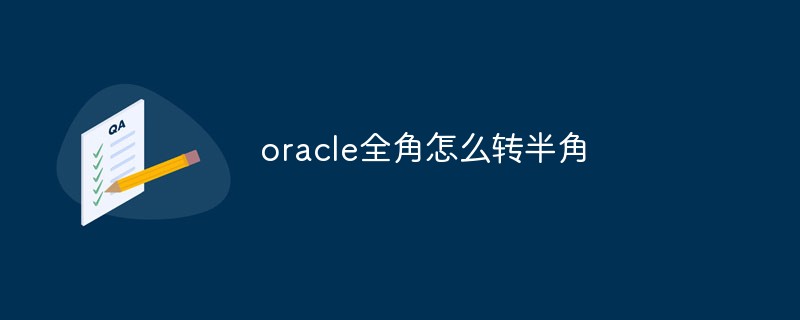 oracle全角怎么转半角May 13, 2022 pm 03:21 PM
oracle全角怎么转半角May 13, 2022 pm 03:21 PM在oracle中,可以利用“TO_SINGLE_BYTE(String)”将全角转换为半角;“TO_SINGLE_BYTE”函数可以将参数中所有多字节字符都替换为等价的单字节字符,只有当数据库字符集同时包含多字节和单字节字符的时候有效。
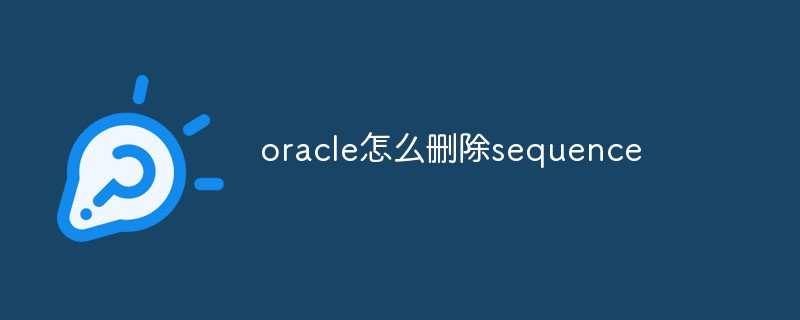 oracle怎么删除sequenceMay 13, 2022 pm 03:35 PM
oracle怎么删除sequenceMay 13, 2022 pm 03:35 PM在oracle中,可以利用“drop sequence sequence名”来删除sequence;sequence是自动增加数字序列的意思,也就是序列号,序列号自动增加不能重置,因此需要利用drop sequence语句来删除序列。
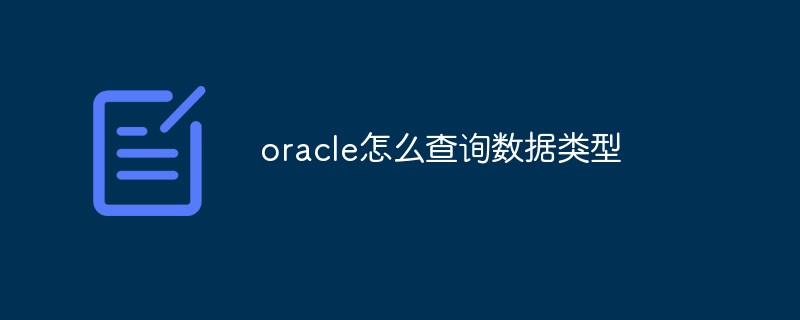 oracle怎么查询数据类型May 13, 2022 pm 04:19 PM
oracle怎么查询数据类型May 13, 2022 pm 04:19 PM在oracle中,可以利用“select ... From all_tab_columns where table_name=upper('表名') AND owner=upper('数据库登录用户名');”语句查询数据库表的数据类型。
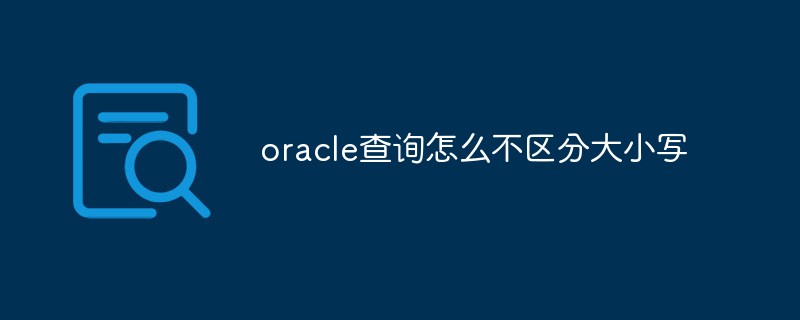 oracle查询怎么不区分大小写May 10, 2022 pm 05:45 PM
oracle查询怎么不区分大小写May 10, 2022 pm 05:45 PM方法:1、利用“LOWER(字段值)”将字段转为小写,或者利用“UPPER(字段值)”将字段转为大写;2、利用“REGEXP_LIKE(字符串,正则表达式,'i')”,当参数设置为“i”时,说明进行匹配不区分大小写。
 Oracle怎么修改sessionMay 13, 2022 pm 05:06 PM
Oracle怎么修改sessionMay 13, 2022 pm 05:06 PM方法:1、利用“alter system set sessions=修改后的数值 scope=spfile”语句修改session参数;2、修改参数之后利用“shutdown immediate – startup”语句重启服务器即可生效。


Hot AI Tools

Undresser.AI Undress
AI-powered app for creating realistic nude photos

AI Clothes Remover
Online AI tool for removing clothes from photos.

Undress AI Tool
Undress images for free

Clothoff.io
AI clothes remover

AI Hentai Generator
Generate AI Hentai for free.

Hot Article

Hot Tools

SAP NetWeaver Server Adapter for Eclipse
Integrate Eclipse with SAP NetWeaver application server.

EditPlus Chinese cracked version
Small size, syntax highlighting, does not support code prompt function

Dreamweaver Mac version
Visual web development tools

Notepad++7.3.1
Easy-to-use and free code editor

VSCode Windows 64-bit Download
A free and powerful IDE editor launched by Microsoft






